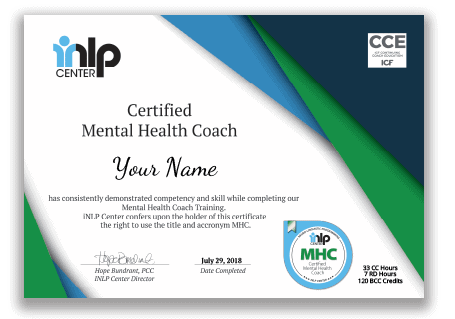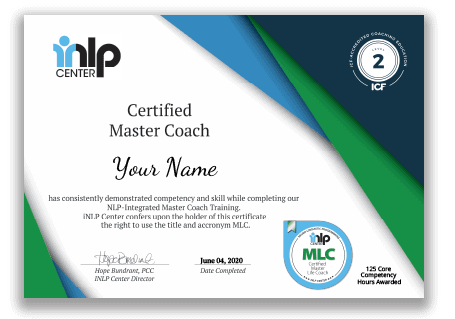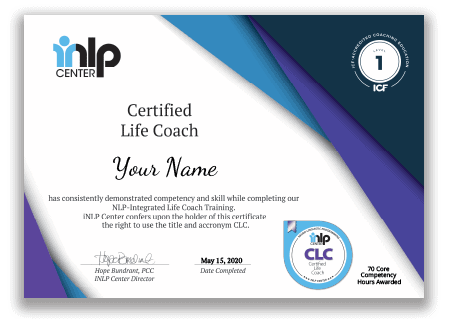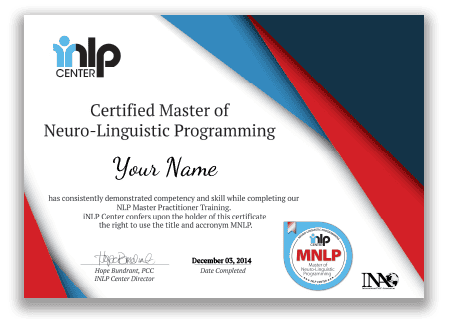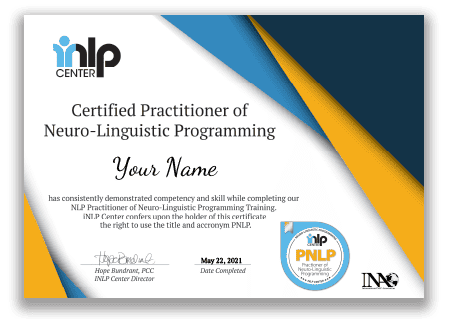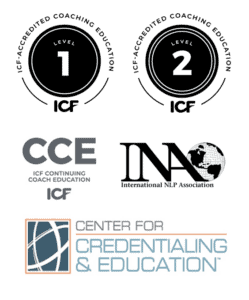Become a Mental Health Coach in as little as 9 Months!
Learn the most advanced coaching models to guide your clients through the emotional transformation they need for optimal mental health. Our ICF- Accredited Mental Health Coach Training Track blends our NLP Coaching tools, advanced Master Coach skills, and our Inner Dynamics Psychology models to achieve breakthrough outcomes for your clients, every time!
Our Mental Health Coach Track Includes:
- 3 Comprehensive Coach Trainings (NLP Life Coach, Master Coach, Mental Health Coach)
- 5 Certifications & Digital Badges
- 200 Hours of Engaging Training
- 100% Online, Self-Paced Learning Platform
- ALL Requirements to earn your PCC coach credential
- 40+ Live Zoom Training Sessions Available Each Week
- 10 ICF Coach Mentor Hours
- Unlimited Peer Coaching & Marketing Consulting
- ICF Credentialing Help
- Lifetime Access to your Training Material, Live Sessions, and Support
Our Mental Health Coach Track is Accredited by:
- ICF International Coach Federation
125-hour Level 2 Accredited Training &
40 Core Competency Hours (CCE) - Center for Credentialing & Education
120-hr Board Certified Coach Training - International NLP Association
NLP Practitioner & NLP Master Certifications included!
Join the Best Accredited Mental Health Coach Training
“If you seek ICF mental health coach certification, robust curriculum, and a research- and science-based approach to coaching, iNLP’s Mental Health Coach Certification Training is the best solution and our top pick overall. This is one of the most comprehensive coach training programs on the market […]”. – Life Coach Magazine
What’s covered in our Mental Health Coach Training
• Integrating Parts Work with NLP Strategies:
Parts Work allows coaches to help clients understand the different facets of their internal world, such as conflicting desires, motivations, and inner voices. Through the integration of Parts Work, coaches will explore how to address these internal dynamics using NLP’s logical levels and chunking techniques. This synergy will help clients align their internal parts with their identity and external behaviors, enhancing overall congruence. By combining NLP and Parts Work, coaches can support clients in gaining clarity around their goals and creating a more integrated self-concept.
• NLP Logical Levels and Parts Work:
Coaches will explore how each part of a client’s internal system can be mapped onto different logical levels (e.g., environment, behavior, capabilities, values, beliefs, identity, and purpose). This framework will help identify at what level the internal conflicts occur and where alignment is needed.
• Chunking Techniques to Reconcile Parts:
Coaches will utilize NLP’s chunking methods to help clients “chunk up” to higher-level concepts or “chunk down” to specific details. This technique enables clients to see how various parts interact across different levels and how they can reconcile conflicting parts by finding a common purpose or aligning values.
• Identifying and Resolving Internal Conflicts:
Congruence is a fundamental concept in NLP, focusing on the alignment between different parts of the self. Coaches will explore how to use Parts Work to help clients identify and resolve internal conflicts that may be preventing them from achieving their goals. By working with inner parts, coaches can guide clients toward internal coherence, where all aspects of their personality work together in harmony rather than pulling in different directions.
• Exploring the Role of Internal Conflicts:
Many clients struggle with internal conflicts, such as wanting to pursue a new career while also fearing failure. Parts Work, combined with NLP techniques, will help clients understand the intentions behind each conflicting part, allowing them to gain insight into how to address and harmonize these dynamics.
• Resolving Polarizations Between Parts:
In cases where parts are polarized (e.g., one part seeks growth while another seeks safety), coaches will guide clients in reframing these dynamics and negotiating between parts. The goal is to create internal agreements that honor the positive intentions of all parts while moving toward aligned action.
Achieve These Key Learning Outcomes:
• Mastering the Identification of Parts and Internal Dialogue:
Coaches will learn to identify and engage with clients’ inner parts through language, body cues, and emotions. By gaining proficiency in internal dialogue techniques, coaches can help clients navigate their internal system, facilitating conversations between parts to resolve internal conflicts. The ability to recognize parts and support clients in creating inner dialogues that lead to solutions is a core skill developed in this module.
• Recognizing the “Protector” and “Vulnerable Child” Dynamics:
Coaches will become familiar with common internal archetypes, such as protectors (parts that aim to safeguard the client) and vulnerable parts (those carrying unresolved pain or trauma). Coaches will explore how these dynamics impact behavior and decision-making and how to work with them to foster internal peace.
• Enhancing Congruence Using NLP and Parts Work Techniques:
The course will provide tools for coaches to help clients align internal parts with their goals, values, and behaviors. When internal parts are in conflict, clients may feel stuck, unmotivated, or unable to move forward. Coaches will learn how to create coherence by ensuring that all parts are working in the same direction, ultimately promoting a more unified self-concept.
• Building Rapport Between Parts for Internal Congruence:
Coaches will learn techniques for facilitating rapport between parts, so they can work collaboratively rather than at odds. When clients experience internal harmony, they are better able to make decisions and take actions that align with their true values and intentions.
Enjoy these Integrative Activities:
• Guided Meditations for Inner Parts Exploration:
Coaches will guide clients through structured meditations to help them connect with their internal parts. Using NLP’s anchoring techniques, clients will identify and engage with specific parts, such as a protector or an inner critic. These meditations will create a space for clients to listen to the needs and concerns of each part, fostering self-awareness and integration.
• Anchoring Positive States for Parts Interaction:
Through NLP anchoring, coaches will help clients access resourceful states (such as calmness, curiosity, or compassion) before engaging with their parts. This ensures that the client’s interaction with challenging parts comes from a grounded and empowered place, increasing the chances of successful internal dialogue.
• Creating a Safe Space for Inner Dialogue:
Coaches will facilitate the creation of an internal “safe space” for the client, where parts can engage in dialogue without fear of judgment. This inner environment promotes open communication between parts and provides a platform for resolution.
• Parts Work in NLP Reframing Sessions:
Participants will practice applying Parts Work in NLP reframing sessions, helping clients shift how they perceive internal conflicts. By guiding clients through reframing exercises, coaches can help parts see their roles in a new light, leading to more harmonious interactions and alignment with the client’s overall goals.
• Reframing the Purpose of Each Part:
Parts often act based on past experiences or outdated beliefs. In reframing sessions, coaches will guide clients in exploring the positive intentions behind each part’s behavior and reframe these intentions to serve the client’s current goals and values. For example, a part that has been overly critical may be reframed as a protector, helping the client avoid future pain, and can then be reassigned a less extreme role.
• Integrating Conflicting Parts for Aligned Action:
Coaches will facilitate sessions where clients bring conflicting parts into alignment by addressing their concerns and finding a shared goal. The aim is to enable clients to move forward with confidence and internal coherence, free from the inner tug-of-war that previously held them back.
Plus, Explore These Additional Concepts:
• Working with Polarizations and Blending of Parts:
Coaches will explore how parts can “blend” with the client, taking over their thoughts or emotions, and how to help clients regain a sense of balance when this occurs. By learning techniques to unblend from parts, coaches will empower clients to step back and observe their internal dynamics without getting overwhelmed by any one part’s agenda.
• Unblending Techniques for Greater Self-Awareness:
Coaches will guide clients in exercises to unblend from their parts, helping them regain clarity and calmness. This is especially useful when a part, such as the inner critic or protector, becomes too dominant and disrupts the client’s ability to make balanced decisions.
• Creating Harmony in Client Systems:
In addition to working with individual parts, coaches will be trained to assess how parts function as a system within the client. By working with the entire internal system rather than focusing on isolated parts, coaches will help clients achieve deeper levels of integration and harmony.
Take a deep journey through your parts and into your core self.
Most students who complete this training report that it is the most meaningful life coaching experience they’ve ever had and use the tools on a regular basis with their clients.
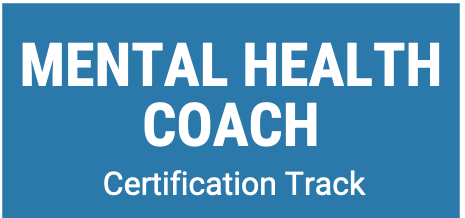 all requirements for the ACC, PCC, and BCC coaching credentials  |
| Includes These Courses: (Click on each to learn more)    Plus  |
| You’ll Receive: 5 Certifications • Mental Health Coach • Master Coach • Certified Life Coach • NLP Master • NLP Practitioner |
| 103 Live Training Sessions in our Zoom Rooms |
| Unlimited Coaching Hours towards your ICF credentials |
| 165 ICF Training Hours |
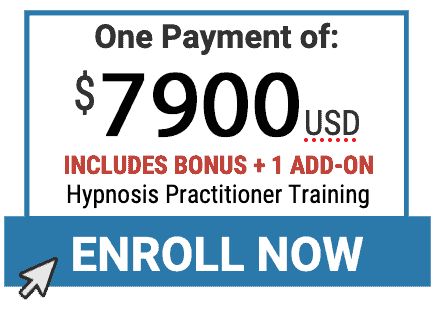 |
| Or, Installment Plan Price: $692/month x 12 months Enroll Now (Total payments=$8295. Does NOT include Hypnosis Training) |
Mental Health Coach Certification Training Track
Our Mental Health Coach Training is part of our Mental Health Coach Certification Track.
The following trainings make up our Mental Health Coach Certification Track:
- NLP-Integrated Life Coach Training (learn about it here)
- Master Coach Training (learn about it here)
- Mental Health Coach Training
You’ll earn these five certifications as well as having met the training and mentoring requirements for the ICF ACC and PCC credentials.
Below is an overview of our the Mental Health Training portion of the track:
- 3 Live Sessions available per week (2 training and 1 practice lab) – You are required to attend at least 20 live sessions to complete your mental health coach training.
- Lifetime Access to the content and live sessions
- 100% Online and self-paced
- Practice activities with partners
- Focus on both personal growth and coaching
- Includes 40 ICF CCE’s
Mental Health Coach Training Prerequisites
• You must be enrolled in our Mental Health Coach Certification Track and have completed the NLP-Integrated Life Coach Training to attend the Mental Health Coach Training sessions.
• If you are already enrolled in our Master Coach Training, you may enroll in our Mental Health Coach Training for $2500.
• For PCC Credentialed Coaches (non-students), you can enroll in our Condensed Mental Health Coach Track for $3200. Please inquire.
Questions? Give us a call or schedule a meeting to chat.
iNLP Center has been qualified by the Center for Credentialing and Education, Inc. (CCE) as a Registered Credential Training Provider, RCTP No.RCTP1007-BCC, to provide training courses qualified for credit for eligibility for the Board Certified Coach credential. Courses that qualify for CCE credit are clearly identified. iNLP Center is solely responsible for all aspects of the training courses.
Now’s a Great Time to Become a Mental Health Coach
In the last 30 years mental health has shifted toward focusing on clinical disorders and prescribing medication for chemical imbalances. This paradigm shift toward medication has pushed aside many effective approaches to non-clinical mental health.
This is where a mental health coach certification training comes in. The industry timing is perfect. Life coaching has exploded into the mainstream. The opportunity to become a mental health coach is a real need.
This niche offers amazing coaching opportunities
Based on long-standing principles of parts psychology, these practices unlock the door to the subconscious mind. The breakthrough mental health methods at the iNLP Center show you specifically how to access parts of you that strongly affect your behavior.
As a coach, knowing the parts model opens opportunities to work at a deep, transformative level with clients. Best of all, the process is simple and straightforward. Almost anyone can do it – Enroll Now to Get Started!
Have Questions about this training?



